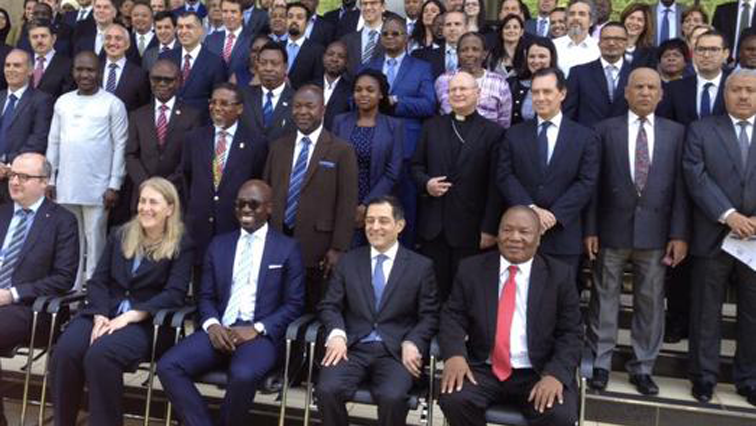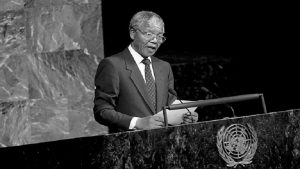Despite being flooded with millions of immigrants fleeing persecution and economic meltdown in their countries, the South African government strives to provide a safe environment for migrants, while at the same time balancing the need to provide much needed services and security to its 50 million-plus citizens, Home Affairs Minister Malusi Gigaba said on Tuesday.
Gigaba was delivering his welcoming remarks at a briefing session on the United Nations Global Compact on Migration for the Diplomatic Corps in South Africa, hosted at the Department of International Relations and Cooperation’s (Dirco) OR Tambo Building in Pretoria.
“As a developing country, South Africa has experienced large mixed-migration flows and seen an unprecedented number of migrants and refugees seeking opportunities and sanctuary in our country post-independence.”
“Our relatively strong economy, stable democracy, liberal and human rights centred policies arguably serve as a pull factor, offering migrants and refugees alike a sense of hope to break away from poverty, conflicts and underdevelopment,”said Gigaba.
“Meanwhile, Sub-Saharan Africa has hosted and continues to host a vast number of forcibly displaced persons with limited resources and support, with South Africa being the largest single recipient of asylum seekers between 2008 and 2011.”
“In this regard, the country is regarded as a leader on the African continent by availing to recognised forcibly displaced persons (refugees) within its territory human rights and fundamental freedoms as contained in the Constitution, such as freedom of movement and the right to choose where to live, work, study and access social services.”
He reminded diplomats that Pretoria provides the services and freedoms to millions of immigrants at a significant economic cost.
“These freedoms demand that the government stretches its limited resources to strike a balance between the needs of citizens and the provision of basic rights to migrants and refugees.”
“The migration, particularly of low-skilled working class migrants, poses a particular challenge as it exerts pressures on the economy, social services and infrastructure, which in turn gives rise to competition for scarce resources in local poor and working class communities, heightening tensions which on several occasions have led to outbursts of xenophobic violence directed at immigrants,” he said.
“Both the South African government and civil society condemn xenophobia in all its forms. The vulnerability, particularly of poor and working class migrants, and more especially women and children, has given rise to human rights abuses and exploitation, amongst others, at the hands of criminal syndicates and unscrupulous public servants.”
Gigaba said in attempting to alleviate the tensions and pressures, the South African government has sought to engage local communities, sensitising them about the rights of immigrants, engaging the immigrants in regard to their rights and responsibilities in South Africa.
At the same time, engaging with neighbouring countries – both bilaterally as well as multilaterally – on measures to facilitate and manage the orderly movement of migrants from the region as the starting point to protecting and safeguarding the rights of those coming to the country.
The session in Pretoria was organised by the department of international relations and cooperation, and the International Organisation for Migration, in partnership with the Swiss and the Mexican diplomatic representations.
Related video click below:






